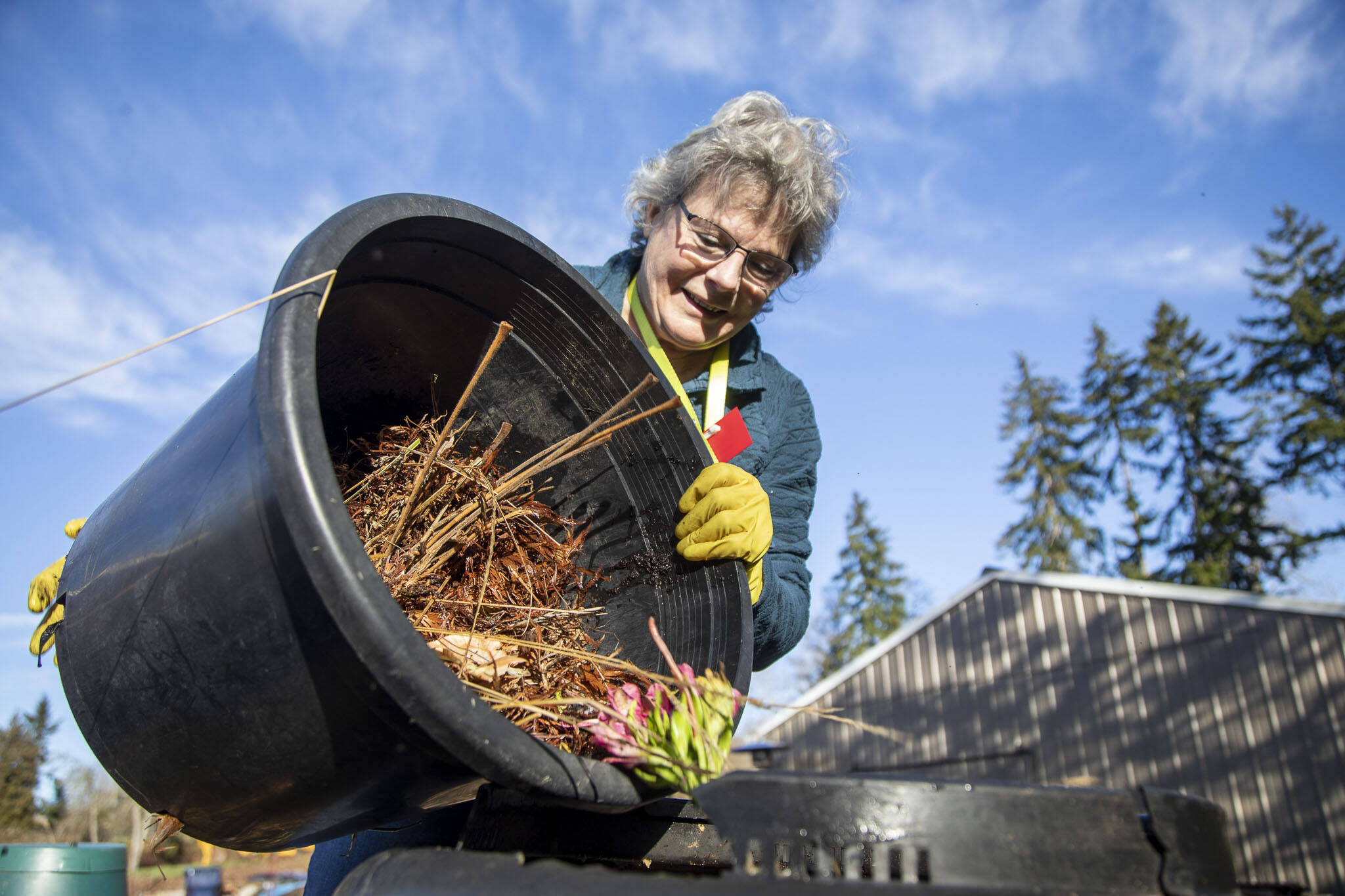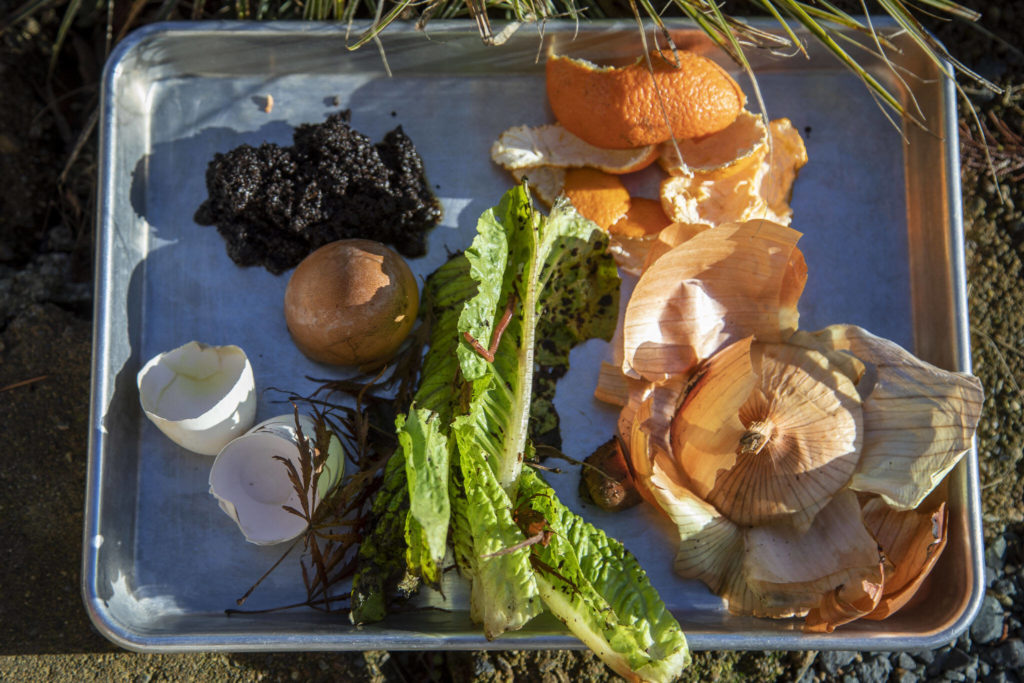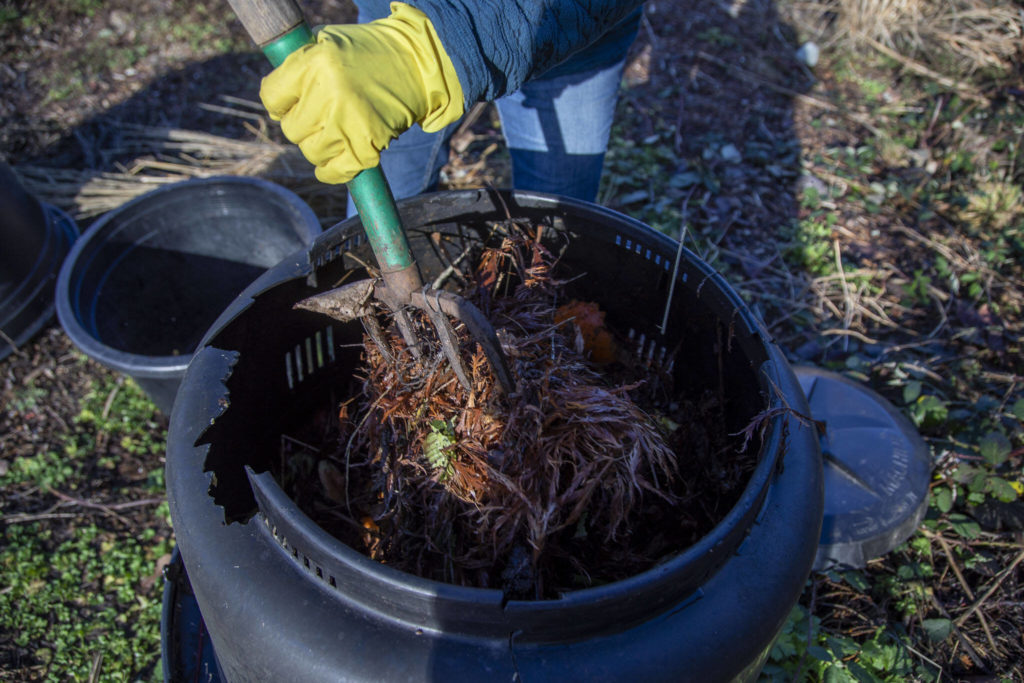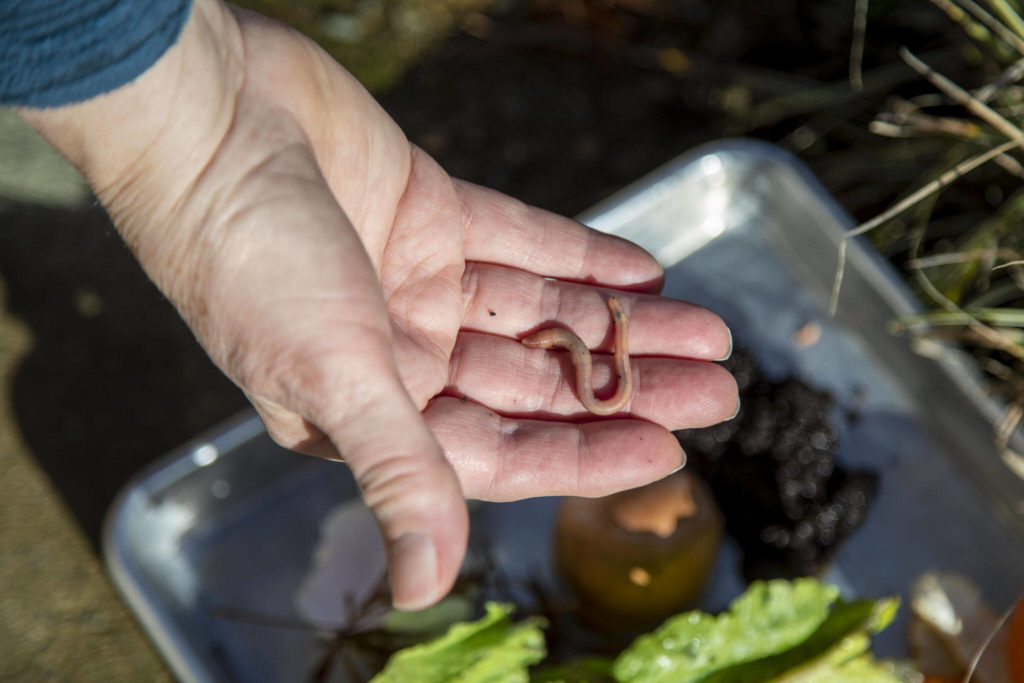The only place it’s hard to compost is an apartment.
So declares Jackie Trimble of Washington State University Master Gardeners. She highly recommends the do-it-yourself approach of getting food scraps from the kitchen and into the soil.
What exactly is composting? The Environmental Protection Agency defines it as a controlled, aerobic (oxygen-required) process that converts organic materials into a nutrient-rich soil amendment or mulch through natural decomposition. The end product is compost – a dark, crumbly, earthy-smelling material. Microorganisms feed on the materials added to the compost pile during the composting process.
In contrast, organic material that’s buried in a landfill doesn’t get oxygen. Instead, it creates methane, a potent, planet-warming gas. Reducing that is the goal of Washington 2022 Organics Management Act, whose goals include making organic waste pickup available at most homes and businesses.
Composting is simple to do on your own property, Trimble said.
“It improves all kinds of soils, including dense and waterlogged.”
If you have questions, there’s plenty of help available, including at the Snohomish County Natural Yard Care and Snohomish County Extension websites. There’s even a Master Gardener hotline, 425-357-6010, and email, snocomg@gmail.com.
Here are some of Trimble’s top tips for would-be composters.
While a bin is not at all necessary, you might find a bin more attractive than piling compost in the corner of the yard. A bin does have the advantage of maintaining the necessary minimum dimensions 3-foot-square dimensions. Some people use a trash can, drilling holes for ventilation. Trimble has a bin that’s open on the bottom, all the better for beneficial worms to find their way in.
“Once a rat got in,” Trimble said. “When I saw him, he ran one way, and I ran the other.”
Stir the compost every day or two. Mix food scraps with brown materials like leaves. A rotating bin is handy but can get heavy.
Don’t compost grass clippings if they’ve been treated with herbicide.
Eggshells? They’re fine, but backyard compost piles don’t get hot enough to process meat and bones.
Coffee grounds? They’re great for the compost pile. Just don’t put them directly on plants.
When the composed is sufficiently broken down, you don’t need a garden to use it. Spread it around trees and bushes, donate it to a community garden, dig a hole and bury it in the corner of the yard. You don’t have to turn it into the soil, you just put it on top.
“Give it a shot,” Trimble said. “It’s easy to do, it’s rewarding.”
Julie Titone is an Everett writer who can be reached at julietitone@icloud.com. Her stories are supported by The Herald’s Environmental and Climate Reporting Fund.
Talk to us
> Give us your news tips.
> Send us a letter to the editor.
> More Herald contact information.





























